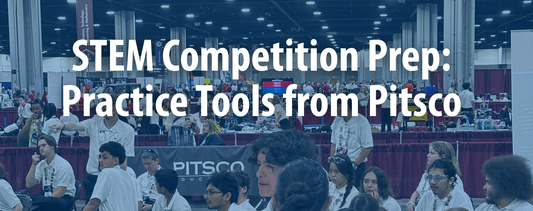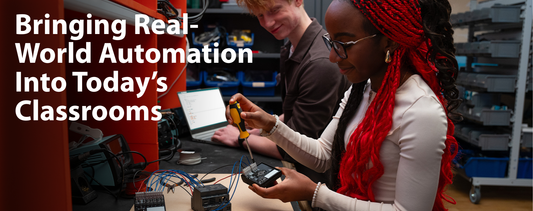Blog: STEM Education Insights and Classroom Tips from Pitsco
Iesha McDonnell: Turning a Project-Based Classroom Into a Haven for Discovery At Lacey Academy, a K—8 school in Little Rock, Arkansas, educator Iesha McDonnell has created a home of her...
Educators are often celebrated as our nation’s quiet heroes – dedicated, inventive, and unwavering in their commitment to helping others succeed. They are role models who shape the future for...
The STEM competition space is more than your typical high-stakes fun. 86% of FIRST® alumnae go on to declare majors in STEM by their second year in college, despite many...
In modern classrooms, preparing students for the future means helping them understand the systems that power the fast-paced world around them. Automation is a perfect example. While it might sound...
Virtual learning has been making education more accessible, flexible, and equitable – for students and teachers alike. But when the COVID-19 pandemic shook up the world, it shook the classroom...
Chantilly, Virginia is home to one of the world’s largest collections of aerospace artifacts—and to one of its most promising young innovators. Dev Goda, a junior at Chantilly High School...






